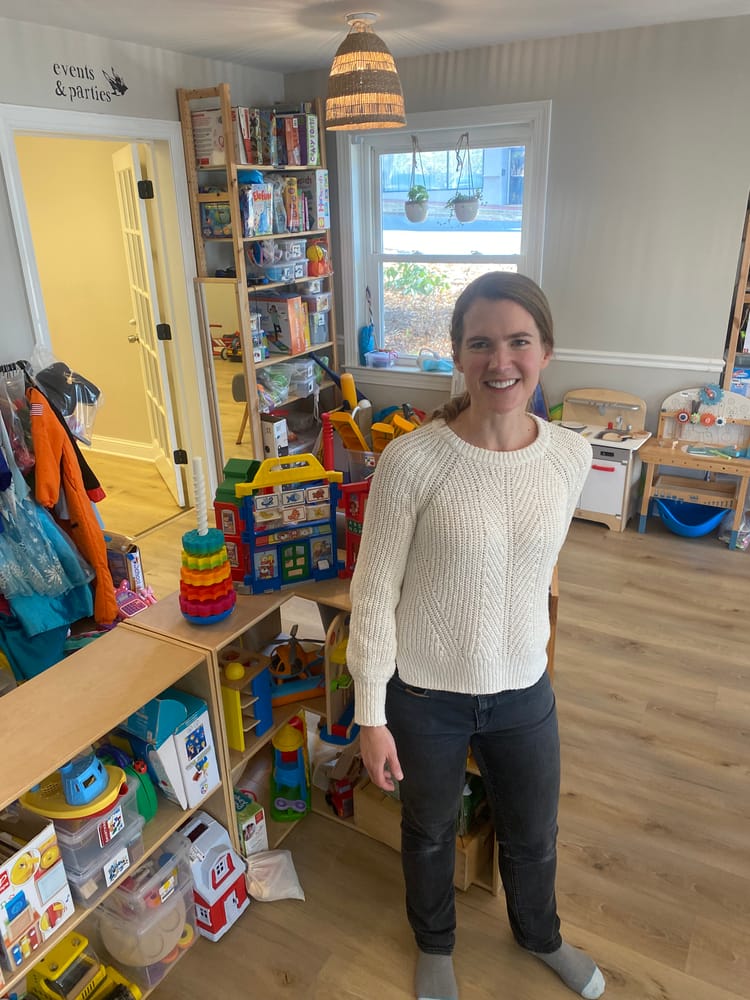Book-Banning, Part II: The Response from Nearby Falls Church Libraries

In our last article, The Falls Church Independent explored how widespread – often politically motivated – book-banning efforts in Virginia and across the nation might impact Mary Riley Styles Public Library, the sole public library in the City of Falls Church.
Has there been an uptick in petitions demanding books be taken off the shelves? What sorts of policies does the library have in place for handling calls to ban books or materials? How does the library balance the public’s “freedom to read” with people’s rights to challenge what’s in circulation?
For that piece, we interviewed the Executive Director of the Virginia Library Association (VLA), Lisa Varga – Library Journal’s 2024 Librarian of the Year – and the Acting Director of Mary Riley Styles Public Library, Marshall Webster.
We also asked Fairfax County Public Library (FCPL) similar questions and have now heard back.
For Falls Church residents who might be near libraries with a Falls Church address outside the City of Falls Church – including Tysons-Pimmit Regional Library at 7584 Leesburg Pike, Woodrow Wilson Library at 6101 Knollwood Dr., and Thomas Jefferson Library at 7415 Arlington Blvd. – FCPL’s responses will help illuminate what’s happening on the book-banning front at those locations and across Fairfax County’s 23 branches.
According to FCPL Head of Marketing, Sara Prohaska, FCPL’s policies for handling public petitions for challenging library materials as well as “use of facilities, substitutions, displays, handouts, and book collections,” are easily found by keyword searching “research.fairfaxcounty.gov.” or going to the front page of any FCPL library website and finding the Board of Trustees Policy Manual.
When asked if FCPL had strengthened its policies for handling book-banning petitions – given the wave of book-banning efforts across Virginia in the past few years – Prohaska deferred to FCPL administrators better suited to respond. However, she did assure that FCPL “has always had a very strong policy” with regard to “upholding the rights of the collection to have multiple viewpoints.”

Q&A with FCPL Administrators
Following is a Q&A from FCPL administrators as culled by Technical Operations Director, FCPL, Dianne Coan.
Fortunately, FCPL has not been inundated with petitions, though some of FCPL's policies have been updated to ensure that petitioners are from the local area (as have policies at Mary Riley Styles Public Library in the City of Falls Church.)
1) What are FCPL's policies for handling complaints about available materials? And, how long have your current policies been in effect?
The Library Board of Trustees’ Policy G, Policy Regarding Selection of Materials guides the selection of materials to be included in Fairfax County Public Library’s collection. The Trustees’ Policy S, Policy Regarding Recommendations about Current and Potential Library Materials covers complaints about existing content. This policy was last affirmed by the Board on July 13, 2023. Individuals who wish to request the withdrawal or reclassification of materials currently owned by the library are encouraged to discuss their concerns with a library supervisor. This includes concerns regarding outdated or inaccurate materials in the collection. If the patron is not satisfied with the response to their request, the manager shall provide the patron with the library’s procedure on requesting formal reconsideration of the library resource.
2) Have you noticed any uptick in complaints recently?
Fairfax County Public Library has not seen an uptick in challenges to books or materials in our collection.
3) What sort of balances must be struck between ensuring the freedom to read or access materials, vs. the public's right to challenge the appropriateness of materials?
These two 'rights' are not at odds with one another. The public has a right to challenge the appropriateness of any materials and the public has a right to access materials. The library's goal is to curate a varied collection that represents diverse topics from many viewpoints. Unsurprisingly, some viewpoints may be considered unorthodox or conflict with one’s personal beliefs. However, the choice of reading materials is an individual matter. When members of the public seek to restrict the access of others is where conflict can exist. What we are seeing in the last few years, both statewide and nationally, is that a parent or other group considers a book inappropriate for their children and they want it removed; this conflicts with the rights of other parents to decide what their children can access. Parents have the right, and are encouraged, to guide the reading of their children, but they must also respect these rights for other parents/guardians.
4) What might you say to reassure readers in the Falls Church area that our public libraries are handling these issues thoughtfully and appropriately?
Libraries take patron feedback seriously. We ensure we have solid policies and procedures in place so our customers can be heard, whether praising the library for its great selection of A Thing, for not having enough of A Thing, or for having A Thing that they find offensive. Our Branch Managers often have conversations that provide more context as to why the library selected materials for the collection. A library's collection is built to represent a diversity of viewpoints and topics; we strive to select so members of our community can see themselves reflected in the books or they get a view into worlds with which they are less familiar.
5) Have there been any recent policy changes to make it easier, or more difficult for people to challenge materials?
The policy guiding recommendations and reconsiderations that was affirmed in 2023 is very similar to the policy that immediately preceded it. The spirit is certainly the same. Any changes made were to ensure reconsiderations were coming from our own community and to protect against challenges designed to clog the reconsideration process, such as bulk lists.
6) Can you describe – generally or specifically – some recent complaints or petitions about library materials and how they were adjudicated?
In the last 15 years, FCPL has averaged two reconsideration requests per year. In 2023, there were three reconsiderations: two were retained and one was removed. There was one reconsideration request that really sticks with me from several years ago, a Young Adult (YA) novel similar to Criminal Minds with young protagonists. The book itself had won multiple awards, was a top pick for YA that year, publishers indicated it was meant for that age group, and it had a buzz within our own youth services staff. After we spoke and I explained our selection philosophy, the reader decided to submit a formal request to move the book from YA to Adult because she thought it was just "too much" for younger readers. The committee did recommend we keep it in YA, where it was originally classified. Our librarians are here to help guide readers and when providing recommendations, they ask questions to best match a reader with a book that works for them.
7) Anything else you'd like to add about the importance of your collection’s philosophy and approach?
A library's collection is built to represent a diversity of viewpoints and topics, and for members of our community to see themselves reflected in the books or to get a view into worlds with which they are less familiar. Two of the cornerstones of library sciences are, ‘Every book its reader and Every reader their book.’ Not every book will have the same resonance with readers. Preferences such as personal history, experience, and if they are a plot-driven or a character-driven reader can all come into play. This is why the staff who select materials work hard to ensure there is a variety that can appeal to different people. Every reader should be able to find their book within our collection and we have staff that can help them.
We are most appreciative of FCPL’s helpful replies on these pressing questions ~ Thank you!
By Christopher Jones






Member discussion